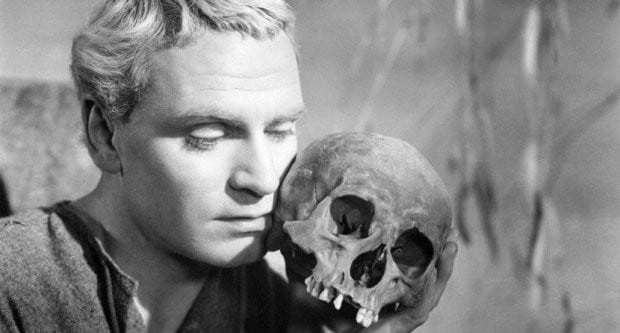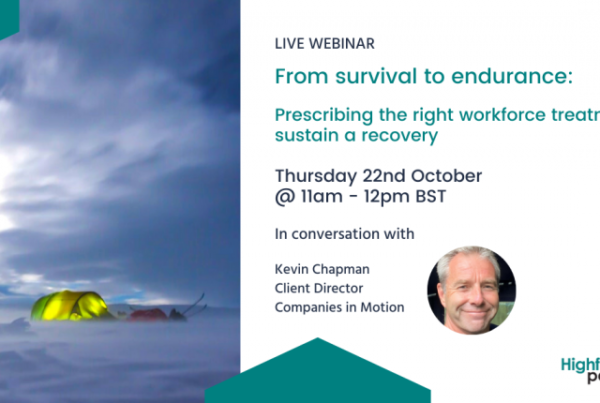“Could it be…….could it possibly be, that HR aren’t recruiting their generalists properly!” (I am wildly misquoting Julia Donaldson!)
This is a somewhat controversial statement I realise, but here are some interesting pieces of information that it’s worth considering before forming a defence against this allegation.
- Cultural fit was deemed the most important and challenging criteria to assess when appointing HR generalists by HR leaders (above behavioural & technical competence)
- 87% of surveyed HR leaders stated there was no formal or consistent processes to assess cultural fit in their organisation
- McKinsey suggest that less than 30% of organisations are able to find the right C-suite leaders, largely related to the enhanced need in these roles to align motives and values to those of the organisation, but where organisations themselves lack clear definition on any shared values, or even organisational culture to assess accurately against
- Harvard Business Review indicates 80% of employee turnover comes from bad hiring decisions, and it costs on average one third of the persons salary to replace them
- 1 in 3 people leave a job during their 1st year of employment (2017 Recruitment & Retention Report)
- Nearly 50% HR leaders are not looking for CIPD qualification at specialist level and above
So getting the appointment right is hard to do, getting it wrong is more common than we’d like, and rectifying a mistake is costly.
Our research project with HR leaders
Having recruited HR professionals for 17 years, I appreciate first hand the importance of ‘cultural fit’ in this discipline compared to many others, in some ways sharing the same territory of C-suite hiring when contemplating the significance of cultural fit, above and beyond more readily identifiable technical or behavioural competences. Whilst some of the statistics above aren’t directly applied to HR hiring, or taken specifically from the UK market, I believe they stand up as relevant trends and can be reasonably transposed to the context of HR hiring.
Over the summer, The Highfield Partnership conducted research into the effective assessment of experienced HR generalists, surveying HR leaders on hiring practises from specialist to leadership level HR appointments. This research project was prompted by two sequential events. The first was hearing a speaker at a NORA networking event, John Down, Chief Financial & Operating Officer of The Dots Global (dubbed the LinkedIn for creatives) discussing D&I in hiring, and challenging the concept of using cultural fit as an assessment criteria. Instead John suggested shared values as an alternative indicator, and one less likely to be contaminated with unconscious bias with subjective assumptions. Soon after this, one of my clients asked for my support to hire a new HR Director, having already met 20+ people at interview, but finding difficulty to identify someone with the right cultural fit. This is by no means unique in HR hiring, so it inspired me to explore how HR leaders were tackling this potentially thorny issue, assessing in a reliable, measurable, and fair way when hiring to their own HR teams?
Within the 16 questions posed to HR leaders, we obtained lots of interesting data, but for the purpose of this article we have condensed the main themes into a number of key headline areas below.
1) Balancing the assessment of technical, behavioural & cultural fit
More HR professionals stated cultural fit (39%) as the most challenging to assess when hiring HR generalists to their organisation. Behavioural competence (37%) was a close second, and 14% stated technical proficiency. Nearly 10% of respondents also mentioned commercial thinking as a challenge to assess…..a subject in itself for another day!
Cultural fit also featured highest in the area considered of most importance when assessing shortlisted candidates in the selection process (phew, I wasn’t imagining it!). Technical proficiency was only at 20%. Perhaps this raises a question, that if willing to sacrifice more tangible measures such as technical and behavioural in favour of cultural fit, what steps are companies taking to ensure they accurately assess this? That said, nearly 50% of respondents suggested they were equally balanced in allocating time during the assessment process, although interestingly cultural fit (13%) came below technical (14%) and behavioural (21%).
2) What is being assessed, and what’s not?
The top 5 hiring processes for HR leadership appointments included the following:
- Structured behavioural interview (77%)
- Experiential interview (74%)
- Meeting non-HR stakeholders beyond the line manager (69%)
- Informal meetings with peers/colleagues (54%)
- Psychometric assessment (36%)
Less than 1 in 5 undertook any form of technical skills testing (situational judgement, presentation, case study etc). The results were quite similar at specialist/management level hiring, with a higher number undertaking practical skills tests (29%) and increased focus on the structured behavioural interview (83%). Overall therefore it seems HR professionals largely rely on more traditional forms of interviewing to evaluate the qualities of HR generalist, with not more than one third electing to run any form of practical or psychometric assessment as part of a selection process.
At all levels, meeting 3-4 people throughout the process was the most common practise, 11% would meet over 7 people at leadership level, whereas only 25% at specialist level would meet more than 4 people.
3) What abilities are most commonly lacking amongst HR generalists?
Probably not surprisingly, commercial acumen was cited highest (73% overall) as the ability most deficient among HR generalists. Courage, analytical ability, creative thinking and influence all followed (30-35%). Influence (55%) and problem solving (36%) were listed second and third to commercial acumen (65%) as the key abilities sought after for HRBP’s. This raised another key question – is commercial acumen prioritised enough in the assessment process? Should this fall into a technical competence for HR, and be tested by some form of practical assessment (less than 20% at leadership level, less than 30% at specialist). Is this reflected in academic attainment? Only 12.5% require Masters level qualification at leadership level, nearly 50% don’t require CIPD at either level. Quite probably commercial acumen will be considered as part of a behavioural assessment, but will this give tangible evidence? Discuss?!
4) A mistake waiting to happen?
Right or wrong, the current state shows cultural fit is key when hiring HR professionals. However when asked whether the company has a formal or consistent process to assess cultural fit, 87% of respondent said they didn’t. A slight alarm bell to consistency, reliability, fairness? Less than one third of companies insist upon interviewing against company values in the process – the highest frequency encourage it, but leave it to hiring managers’ discretion. Another alarm bell to leaving a window for unconscious bias? Finally, the most frequent answer to which single factor is most important when determining cultural fit, was shared values & beliefs, by some margin at nearly 50%. With only 13% of companies having a formal process to measure such things though (not to mention even having them identified), does this sound another potential alarm bell? I revert back to the proposed risks in the Harvard Business Review article around hiring for talent but not fit. Clearly HR are trying to avoid this, but are the measures fail safe, or too often lead by intuition?
So, how do you solve a problem like ‘personal’ or ‘cultural’ fit?
This article isn’t intended to reprimand anyone on their recruitment processes, but simply raise a spectre of doubt if appropriate, perhaps encouraging others to have a second look at their processes to explore better ways of doing things. I will be honest enough to own up here…I remain a large advocate of well guided intuition leading a selection process, based on insight and experience! I believe it’s one of my own biggest virtues! Perhaps, though, some form of psychometric assessment could help make hiring decisions more impartial and objective, although I do maintain a healthy scepticism on purely scientific interventions in recruitment!
So with the survey in mind, I also explored what some companies have been doing to address those areas of assessment with less overt tangibility, whether that is cultural fit, values, beliefs.
From the survey, the most effective changes introduced by HR leaders to enable stronger assessment on ‘personal’ fit were
- Increasing non-HR participation in the selection process (59%)
- Increasing the behavioural focus of the interviews (45%)
- Introducing informal/social meetings with peers/colleagues (37%)
- Interviewing specifically against values (36%)
- Increasing the number of participants in the process (22%)
As well developing a questionnaire to HR leaders, I also spoke to a number of HR professionals who had either seemed to confront this challenge already, or in the process of doing so, and below I have shared a summary of some of these experiences.
Gary Manning, Talent Acquisition Lead at Candy Crush gaming company King described how they now have a well embedded assessment process that firmly incorporates capability and values at the heart of their hiring process. Every hire will go through 6 stages of the selection process, 3 focused on capability (technical skills, experience etc) and 3 to cover each of the 5 company values, with interviewers on the latter focusing solely on a 1-2 values at each meeting. Key to this has been to ensure every assessor is equipped with clear indicators to permit consistent scoring, but also to ensure the process involves a range of stakeholder from across the business. This commitment to values at the heart of hiring struck me a particularly refreshing, and not only have the outcomes been successful in quality of hire, but this in itself has helped engage talent with the authenticity of values within it’s company DNA.
Sarah Sturton, Director of Organisational Development at the Birds Eye manufacturing business Nomad Foods, has lead the project to launch new company visions and values following new business ownership, conscious the organisation lacked any real identity. The success of this has been to properly research, test, and scope shared values. These were then piloted and championed by leadership team as a 360 degree process. To embed these in the organisation, communication has been key, and then ongoing efforts to live and breathe these values comes from enshrining these in operational practise, with universal competency frameworks, assimilation to the performance appraisal process, establishing ambassadors & toolkits to reinforce all the way, and proactively ‘gossiping’ success. Of course the key was to identify the gap in the first place though!
Ben Williams, MD of Assessment Design consultancy Sten10 provides the Occupational Psychologists view. Ben first makes the point that assessing against organisational values is easier than personal values (see the link to his article on LinkedIn below), the latter being extremely difficult to scrutinise accurately, so the looking at what drives the organisation is critical in this. Ben recommended The Hofstede Multi-Focus Model on Organisational Culture as one of the best he’s come across to enable this. Of the psychometric tools available in the market, Ben explains the larger publishers label these tools as personality or strengths questionnaires rather than cultural assessment tools, but highlighted Saville Wave, BeTalent Culture tool and CALOMM by ICQ Consulting among those interesting to consider.
Conclusions
In some ways HR (& recruitment) professionals can be forgiven for relying on their instincts – they have plenty of experience. I would suggest though that perhaps a degree of complacency seems to exist, and this could stifle innovation and creative thinking in the very place where it should thrive most fervently.
Cultural fit, shared values, whatever the particular facet around a personal fit may be, it’s a nut that is clearly still there to be cracked. Commercial thinking….maybe that’s where the next chapter of debate on effective HR hiring should be most focused next…..to be continued!
If you would like to receive a powerpoint copy of the survey results, please contact me on tom.godber@highfieldpartners.com
Below are links to relevant articles for some of the statistics quoted in this article:
https://hbr.org/2017/06/when-leaders-are-hired-for-talent-but-fired-for-not-fitting-in
https://hbr.org/2017/03/why-do-employees-stay-a-clear-career-path-and-good-pay-for-starters
https://www.psychometrics.com/poor-hiring-decisions-blamed-80-employee-turnover/
https://www.linkedin.com/pulse/20141117215950-7952116-assessing-values-think-onions/




